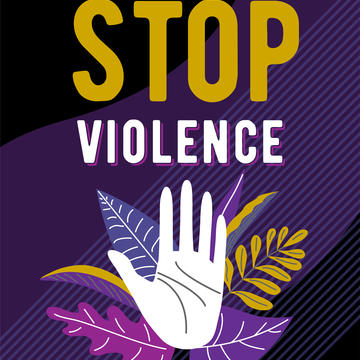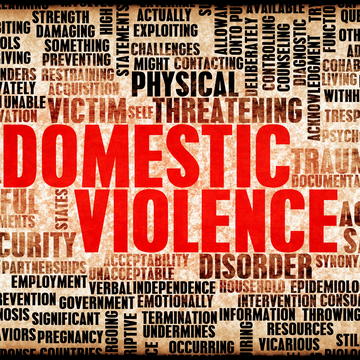Central State University Discrimination, Harassment, Sexual Misconduct, and Retaliation Policy
Central State University is committed to providing an environment that is free from sexual misconduct, retaliation, harassment, and discrimination based on race, creed, color, national or ethnic origin, ancestry, religion, sex, disability, age, marital status, sexual orientation, gender identity, genetic information and military or veteran status in accordance with local, state, and federal laws. As members of the Central State community, students and employees are expected to live the University’s three tenets of Service, Protocol and Civility. Discrimination and harassment are not consistent with the three tenants, undermine a healthy learning working and living atmosphere, and contravene the compelling priorities of Central State University. Act of discrimination, harassment, sexual misconduct, and retaliation will be addressed consistent with this policy.
DEFINITIONS
“Discrimination” means conduct that is based on race, creed, color, national origin, ancestry, religion, sex, disability, age, marital status, sexual orientation gender identity, genetic information, and military or veteran status that excludes an individual from participation; denies the individual benefits; treats the individual differently; or otherwise adversely affects a terms and condition of the individual’s employment, education, living condition, or participation in a University program or activity.
“Harassment” means conduct that is based upon an individual’s race, creed, color, national or ethnic origin, ancestry, religion, sex, disability, age, marital status, sexual orientation, gender identity, genetic information, and military or veteran status which is physically threatening, harmful or humiliating or creates a hostile environment. Harassment does not have to include an intent to harm, be directed at a specific target, or involve repeated incidents.
“Sexual Harassment” means unwelcome conduct including sexual advances, request for sexual favors or other physical or verbal conduct of a sexual nature including sexual assault.
- Quid Pro Quo Harassment: This type of harassment occurs when the terms or conditions of employment, educational benefits, academic grades or opportunities, living environment, or participation in a University activity are either explicitly or implicitly conditioned upon the submission to or rejection of unwelcomed sexual advances or sexual favors or such submission or rejection is a factor in decisions affecting employment, educational benefits, academic grades, or opportunities, living environment, or participation in a University activity.
- Hostile Environment Harassment: A hostile environment is created when conduct is sufficiently serious both objectively and subjectively to limit a person’s ability to participate in or benefit from University programs, services, opportunities, or employment.

“Sexual Misconduct” means conduct which includes sexual assault, inducing incapacitation for sexual purposes, sexual exploitation, relationship violence, stalking, and intimidation.
“Sexual Assault” means an actual or attempted sexual contact with another person without that person’s consent including sexual contact or intercourse when the victim is unable to consent, or intentional or unwelcome touching of another’s intimate body parts (genital area, groin, inner thigh, buttocks, or breast), or Sexual intercourse without consent.
“Consent” means informed, freely given and mutual agreement to engage in sexual activity, someone who is incapacitated cannot consent, incapacitated can include being under the influence of drugs or alcohol, being asleep, unconscious, or having an intellectual or other disability that prevents the victim from having the capacity to give consent. Past consent does not imply future consent. Silence or the absence of resistance does not imply consent. Consent to engage is sexual activity with one person does not imply consent to engage in sexual activity with another. Consent can be withdrawn at any time. Any use of coercion, force, duress, deception, or threat of force to obtain consent invalidates consent.
“Inducing incapacitation for sexual purposes” means the use of drugs, alcohol, or other means with the intent to affect or having actual effect on the ability of the individual to consent or refuse to consent to sexual contact.
“Relationship Violence” means dating or domestic abuse or violence between partners or former partners whether residing in the same household or not which involves battering that causes bodily injury, purposely or knowingly causing reasonable apprehension of bodily injury, emotional abuse creating apprehension or bodily injury or property damage or stalking.
“Stalking” means repeatedly following, harassing, threatening, or intimidating another by telephone, mail, electronic communication, social media or any other action, devise or method that purposely or knowingly causes substantial emotional distress or reasonable fear of bodily injury or death.
“Sexual Exploitation” means taking non-consensual or abusive sexual advantage of another for anyone’s advantage or benefit other than the person being exploited, and the behavior does not otherwise constitute one of the preceding sexual misconduct offenses. Offenses include but are not limited to, prostituting another person; non-consensual visual or audio recording of sexual activity and/or distribution of such visual or audio media; voyeurism or permitting voyeurism; exposing oneself or inducing others to expose themselves; or possessing, distributing, viewing, or forcing others to view illegal pornography.
“Retaliation” Means any action taken by an accused individual or a third party against any person because that person has opposed any practice forbidden under this policy or because that person has filed a complaint, testified, assisted, or participated in any manner in an investigation or proceeding into any practice forbidden by this policy. This includes any action taken by a bystander who intervened to stop or attempt to stop discrimination, harassment, or sexual misconduct.

REPORTING
The law prohibits discrimination, harassment, sexual misconduct, or retaliation between members of the University community including students, faculty, staff, applicants, and campus guests. This policy applies to all University programs and employment on or off campus. It is central to the values of Central State University that any individual who believes s/he may have been a target of unlawful discrimination, harassment, sexual misconduct, or retaliation feel free to report his or her concern for appropriate investigation and response without fear of retaliation or retribution.
All complaints or concerns about conduct that may violate this policy should be filed with the following offices or officials.
Human Resources – Title IX Office
Newsom Administration Building
Suite 12
1400 Brush Row Road
P.O. Box 1004
Wilberforce, Ohio 45384
Phone: (937) 376-6563
titleix@centralstate.edu
DISCRIMINATION, HARASSMENT, AND RETALIATION POLICY:

